- Home
- Penelope Lively
Cleopatra's Sister Page 12
Cleopatra's Sister Read online
Page 12
And then a voice was saying loudly, ‘Hey! Where’s the rest of the movie?’ He whipped wide awake. The cabin lights were on and the screen was blank. All over the plane people were stirring and turning. The FASTEN SEAT BELTS sign was lit up. One of the cabin crew hurried down the aisle. The computer salesmen had come to and were staring round dopily. One of them said, ‘Christ! Are we there already? I could have done with a bit more kip.’
Howard lifted the blind and looked out of the window. It was still daylight, and the white mantle of cloud stretched as far as he could see, delicately tinted with grey and, in the distance, suffused with apricot reflections from an invisible sun. He looked at his watch. They had been flying for some four and a half hours.
The cabin was becoming restless. One or two people left their seats to make for the toilets, and were shooed back by the cabin crew. Others craned uneasily over the seats. An Indian stood up and was shouting excitedly at a passing steward, who ignored him and vanished into the business section. The aircraft seemed to be losing height. The unrest and agitation increased.
The intercom crackled. ‘This is Captain Soames speaking. We are experiencing some engine trouble and will have to interrupt this flight at Marsopolis. We have been given permission to land and will be starting our descent within a few minutes. We apologize for the inconvenience and hope to let you know what length of delay to expect as soon as possible.’
Howard’s immediate neighbour groaned. ‘Bugger that – a night in the Holiday Inn at Marsowhatsit, that’s what we can expect, I imagine.’
‘Where the hell is it, anyway?’
‘North African coast somewhere, isn’t it?’ The man turned to Howard. ‘You know this place, by any chance?’
‘It’s the capital of Callimbia,’ said Howard. ‘That’s all I know about it.’
The air crew were patrolling the aisles, with reassuring smiles. The blinds rattled up on both sides and light flooded in. Turbulence began as the plane descended more steeply. A baby began to cry.
‘Jesus!’ said the girl from the United States Embassy in Nairobi. ‘Wouldn’t you know it! Larry’s got a table booked at the best restaurant in town – welcome-back party. I guess I can kiss that goodbye.’ She peered across and out of the window; her expression changed. ‘Or is this what they say when you’re going to crash and they prefer not to mention it?’
‘I don’t know,’ said Lucy. ‘I don’t think so. I was in a plane that got engine trouble once before and it just came down and we got into another one. Eventually.’
‘Eventually,’ said the girl. ‘That’s what I’m afraid of. Oh, well. It’s on the coast, this place, isn’t it? Maybe we can go to the beach while they fix us up.’
It is also in some kind of political difficulty, thought Lucy. Something about reports of disturbances at the army headquarters. I should know more about Callimbia. Oil. Those boxes of dates you buy at Christmas. Different governments every six months.
They were in cloud now, white mist streaming past the windows, the plane shuddering. The baby was screaming and someone was being sick.
Howard could see a group of airport buildings in the distance. The plane had started to taxi towards them and then came to a halt, in the middle of a waste of concrete. There were a lot of people about down there, a good many of them soldiers with rifles slung over their shoulders. He wondered about this. Most of the vehicles buzzing to and fro were army vehicles, too. The only other grounded aircraft to be seen carried the logo of the local airline: there were several unmarked helicopters.
The cabin crew now hurried up the aisles in the direction of the flight deck. Five minutes passed. Ten. People were fidgeting. Children broke loose and ran up and down. The FASTEN SEAT BELTS sign remained on, but a number of passengers got up to take things from the overhead lockers.
‘Oh, come on,’ said the computer salesman. ‘I need to put through a call to the office.’
Several vehicles had now converged upon the forward end of the plane. A gangway was being wheeled into position up there. There was a lot of activity on the ground; people hurried to and fro. A minibus had arrived. The crew appeared suddenly on the tarmac and stood in a group; there seemed to be an argument going on; Howard could see the Captain talking vigorously to a man in a dark suit. And then a couple of soldiers began to shepherd them towards the minibus. A stewardess who seemed reluctant to get in was shoved unceremoniously through the door.
Howard’s neighbour was also peering out. ‘What the hell’s going on down there?’
‘I don’t know. They seem to be letting the crew off first.’
There was disturbance now further up the plane. Howard lifted himself to look over the top of the seats and saw figures advancing down the aisles.
‘It’s something to do with immigration,’ said the computer salesman. ‘Passports. Why the devil don’t they take us into the airport and do it there?’
When the official drew level with their row they saw that he was amassing passports into a large canvas bag. There were a couple of soldiers behind him.
‘What’s this about?’ said the computer salesman. ‘No, thank you. Here’s my passport. You can check it over and I’ll have it back, if you don’t mind.’
‘All passports!’
‘No. You look at it here, OK?’
One of the soldiers now stepped forward, thrust his face down and shouted incomprehensibly.
The computer salesman flinched. ‘For Christ’s sake! All right, then, here you are.’
Howard fished his passport from his pocket and handed it over. The cavalcade moved on to the next row.
‘God Almighty! What is this place? They could take a few lessons in customer relations.’
‘Maybe they don’t have a tourist industry,’ said the other computer man.
The whole cabin was chattering now. Heads craned over seats, following the progress of the passport collectors and the soldiers. One of the Americans from the mission school got up and sauntered down the aisle after them. ‘Excuse me …’ Howard heard him say. ‘Hey … excuse me …’
A soldier turned and hurried back towards him, snapping an instruction.
‘Look,’ said the American. ‘Some of us are wondering …’
The soldier poked the butt of his rifle into his stomach and the man fell back into his seat.
The computer salesman swung round to Howard. ‘Did you see that! This is crazy. I can tell you one thing. I’m going to be putting in a complaint when I get back to the UK.’
‘Do you know, we’ve been sitting here for precisely twenty-five minutes?’ said the girl from the embassy. ‘I mean, this is ridiculous. And why did they take the passports away? I don’t get it.’
‘Neither do I,’ said Lucy. From where she was sitting she could see little out of the window except the occasional truck or lorry bumping over the tarmac, and people standing around. Most of them seemed to be staring up at the plane.
The passport collectors and the soldiers now came back up the aisles. The passport collectors disappeared but a soldier remained standing in each aisle, at the curtain into the business-class section.
‘And what are these guys for?’
Lucy tried to see beyond the soldier into the further cabin. Through there, an altercation was going on, someone shouting that they’d been waiting quite long enough now … absurd delay … demand to see the airport controller. And then another voice cut in, lower, inaudible. And the first voice shouted again and the soldier turned round and disappeared and the voice ceased, abruptly.
The soldier returned and stood in the centre of the aisle again. The intercom came on, with someone saying something inaudible, and then another speaker took over, talking clear precise English with a tinge of an accent: ‘All passengers should now disembark at the forward end of the plane and proceed to the airport building as instructed. Please take your hand luggage with you.’ He spoke again in French, and then in Arabic.
‘And about time too,’ said the Ameri
can girl. ‘A hot bath and a martini, that’s what I need.’
Lucy thought, but whose was that voice? And where are the cabin crew?
The plane came to life, people reaching up into the lockers, stretching, commenting. The aisles filled up; the lines shuffled forward. As they passed through the business-class section Lucy saw a man wiping blood from his mouth with a tissue. The woman with him had her hand on his arm and looked tearful.
‘Did you see that guy? What d’you think happened?’
‘I don’t know,’ said Lucy.
‘Maybe something fell out of one of the lockers.’
‘I expect so.’
From the top of the gangway they could see the passengers ahead of them moving across the tarmac in a long straggling line. At each side of the line, every ten yards or so, there was a soldier. Soldiers stood at the top and bottom of the gangway. Lucy looked across at the airport building. There were projections of some kind on the flat roof. As she stared it came to her that they might be machine guns. A helicopter circled overhead.
‘This is the craziest airport I ever saw!’ said the embassy girl. ‘What do they think they’re doing, for goodness’ sake? You don’t need half the army to help a few people get off a plane.’
I don’t like this, Lucy thought. I don’t like this at all.
2
Howard eyed the soldiers as he walked towards the airport building. Their uniforms were motley and ill-fitting, but the rifles with which they were slung looked authentic enough. Not that he was any expert. They were an interesting range of physical types, he noticed – some quite negroid in appearance, others pale-skinned and Greek-looking, Semitic faces and lean brown Arab features. But why were they all over the place like this?
The passengers were marshalled into what appeared to be the main arrivals hall of the airport, where the more restive began at once to investigate the facilities. Howard joined the American mission-school party whose apparent leader – he who had accosted the soldier on the plane – returned from a tour of inspection.
‘You’re not gonna believe this, but there’s not one airline desk active in this place. PanAm, BA, TWA … closed down, the lot of them.’
‘Maybe it’s their Sunday,’ someone suggested.
‘Oh, come on … Airlines run on the sabbath, the world over. You know what, I think we should call our embassy. I don’t like the way these people are handling this.’ He was a big gangling man with penetrating blue eyes and a loud voice; you could imagine him running up and down a games pitch, blowing a whistle at small boys.
Howard pointed out that the flight crew were still nowhere to be seen.
‘That’s right.’ The American teacher pondered. ‘You’d think they’d be telling us something about our onward journey. This is the last time I’ll use British Capricorn, I can tell you that. I’m Chuck Newland, by the way – Naivasha Boys School.’
‘Howard Beamish.’
‘Ah … Here we go … They’re making an announcement.’
The voice that came over the public address system was the one which had issued instructions on the plane. ‘Will passengers from CAP 500 please divide up into national groups. United States citizens to Exit A, British citizens to Exit B, Japanese to Exit C, EC countries to Exit D, African and Asian nationalities to Exit E, others remain here. This procedure is necessary for administrative purposes.’ The instruction was repeated in French and Arabic.
There was an instant babble of comment. People began to mill about, and to move towards the various exits.
‘For heavens’ sake!’ said Chuck Newland. One of his group suggested that the intention must be to return the passports.
‘I guess so. But it seems a pretty screwy way to go about it.’ He heaved his flight bag over his shoulder and turned to Howard. ‘Well, see you later. On our way to Nairobi, let’s hope.’
The British group made its way out into a corridor, closely supervised by a posse of soldiers, who ushered them for some distance and eventually into a large room furnished with rows of moulded plastic seats, and screened off from the corridor by a glass partition. The opposite wall was entirely window, but blinds had been drawn down so that it was not possible to see out. The passengers – there were around forty of them – drifted towards the seats and began to settle down.
‘Here we go for another two-hour wait,’ said the computer salesman. ‘This is the worst travel cock-up I’ve been in for quite a time.’ Howard nodded polite agreement and headed for a different part of the room.
He saw that the young woman who had been reading Anna Karenina on the plane was alone at the end of one of the rows of seats. He sat down alongside her, dumping the haversack at his feet. She was not reading now, but looking round intently, apparently taking stock. Howard observed covertly. He saw a small, trim person dressed in brown trousers and a sea-green sweater, with a black leather jacket. She was pretty without being arresting: a cloud of dark hair, a face with neat, crisp features, a particularly agreeable set to the nose, an appealing line to the lips. No make-up. A drift of freckles.
She too was glancing now, aware of his scrutiny. He said hastily, ‘We seem to be being shoved around rather, I must say.’
‘We certainly are,’ said Lucy.
She recognized now that lurid haversack, and remembered that she had also seen this man on the plane, waiting in the toilet queue. He was of medium height and rather thin. Thick brown hair, long face and a light beard. Alert expression; pleasant smile. Greenish-brown eyes and curiously luxuriant eyelashes. Somewhat shabby appearance – crumpled cotton chinos, a veteran anorak.
‘This is a most peculiar airport,’ she went on.
‘All the airline desks are closed down.’
‘Yes. But not just that. There aren’t any planes. Listen. Nothing coming in or going out. Just these helicopters.’
They sat in silence for a few moments.
‘I don’t know what to make of it,’ said Howard. ‘It begins to get a bit worrying, frankly.’
‘I think there’s been some sort of coup. I saw something earlier in the paper about disturbances here. I think there’s been a political coup and they’ve closed the airport down and we’ve fetched up in the middle of it.’
Howard considered. ‘That would make sense. In which case presumably they’re just sussing us out and then we’ll be on our way.’
‘I suppose so,’ said Lucy. ‘I hope so.’
‘Well, what point would there be in making us hang around here?’
‘I can’t think of one,’ replied Lucy after a moment. And indeed she couldn’t.
‘Why did they let us land, though?’ Howard continued.
‘Quite. And why didn’t our captain pick a different airport?’
‘One must assume,’ said Howard, ‘that he didn’t know there was a problem here, or else that the engine trouble was such that he had to get down as quickly as possible, no matter where. Either way, it’s about time we were offered some sort of explanation.’
Others felt the same, clearly. People peered through the glass screen into the corridor, and the more daring accosted the soldiers posted at the entrance, who stared impassively back.
‘They will have to get us another plane,’ said Lucy. ‘Unless this one can be fixed, and in any case what does engine trouble mean? Is it like your car hiccuping on the motorway? And the A A man does something deft with a screwdriver and hey presto! Or is it one of those cases when they shake their heads gloomily and you end up being carted off on a breakdown truck? Whatever, I imagine we’re here for the night. And I’d be a lot happier if we were told something. Politely, by someone in authority, if anyone is, and with less of the Callimbian army standing around. My name’s Lucy Faulkner, by the way. Who are you?’
Howard introduced himself. The odd thing was that he did not now feel unhappy. The headache he suffered on the plane had vanished, and he was in no great hurry to reach Nairobi after all, he found. This delay was indeed perturbing, he supposed, but it w
ould undoubtedly be sorted out in due course and in the meanwhile … Well, in the meanwhile he had achieved a rather congenial companion. He really must try not to look at her so intently, though.
There was a burst of activity now at the entrance to the room and a trolley appeared loaded with cans of soft drink and packaged snacks. People began to get up and converge upon it.
‘Would you like something to eat?’ said Howard. ‘There doesn’t look to be much choice but I can forage.’
‘Thanks. Just a cold drink.’
He returned with a couple of cans and some packets of crisps and chocolate biscuits. ‘I’ve brought rather more than you asked for, on the grounds that we seem to be living from moment to moment and it may be wise to make contingency plans. If you don’t want this now you can always stash it away against hard times.’
Lucy laughed. She looked directly at him and then away again, quickly. The queasy feeling she had developed earlier was ebbing; instead, she was slightly exhilarated. But I still don’t like what’s going on, she thought. Why don’t they tell us something?
‘Handing out food is definitely a bad sign. We’re being softened up.’
‘Do you think so?’ said Howard. He bit into a sandwich and then put it down. ‘If that’s the case, they’re not going about it very cleverly. This is inedible, I’ve been trying to remember what I know about this country, and it amounts to not very much. Something to do with Cleopatra’s sister and that’s about it.’
‘It’s had a series of unstable governments. It was under Italian administration before the war. Before that I think it was Turkish. It exports dates and in the sixties the tourist industry got going a bit. There were package holidays for a while, and then all that folded up because of the unstable governments, and the economy going haywire. It has oil, though, on a relatively small scale.’

 The House in Norham Gardens
The House in Norham Gardens Family Album
Family Album Life in the Garden
Life in the Garden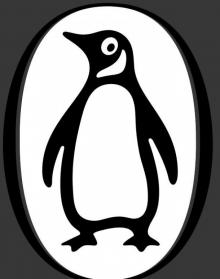 Oleander, Jacaranda: A Childhood Perceived
Oleander, Jacaranda: A Childhood Perceived Cleopatra's Sister
Cleopatra's Sister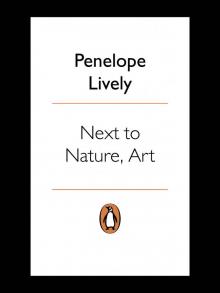 Next to Nature, Art
Next to Nature, Art A Stitch in Time
A Stitch in Time Moon Tiger
Moon Tiger The Photograph
The Photograph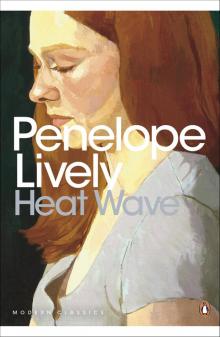 Heat Wave
Heat Wave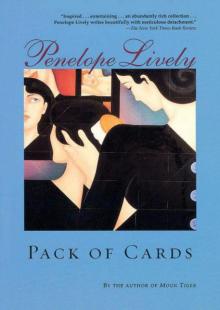 Pack of Cards
Pack of Cards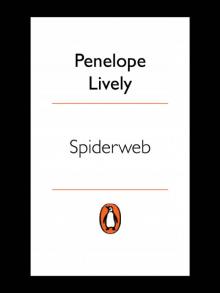 Spiderweb
Spiderweb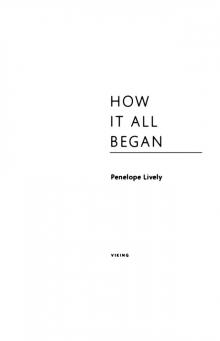 How It All Began
How It All Began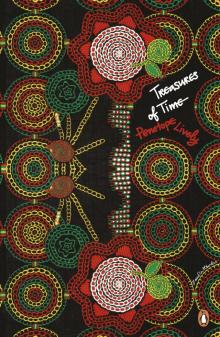 Treasures of Time
Treasures of Time The Road to Lichfield
The Road to Lichfield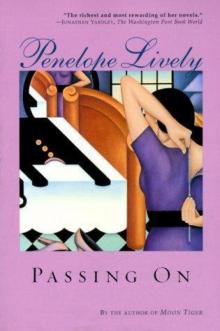 Passing On
Passing On Making It Up
Making It Up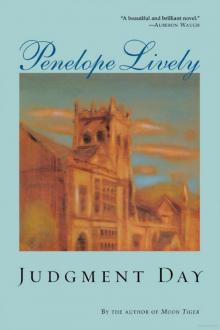 Judgment Day
Judgment Day The Purple Swamp Hen and Other Stories
The Purple Swamp Hen and Other Stories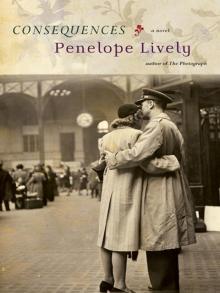 Consequences
Consequences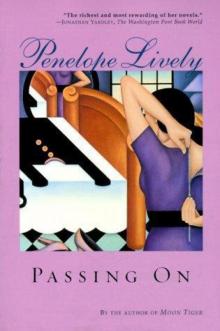 *****Passing On*****
*****Passing On*****